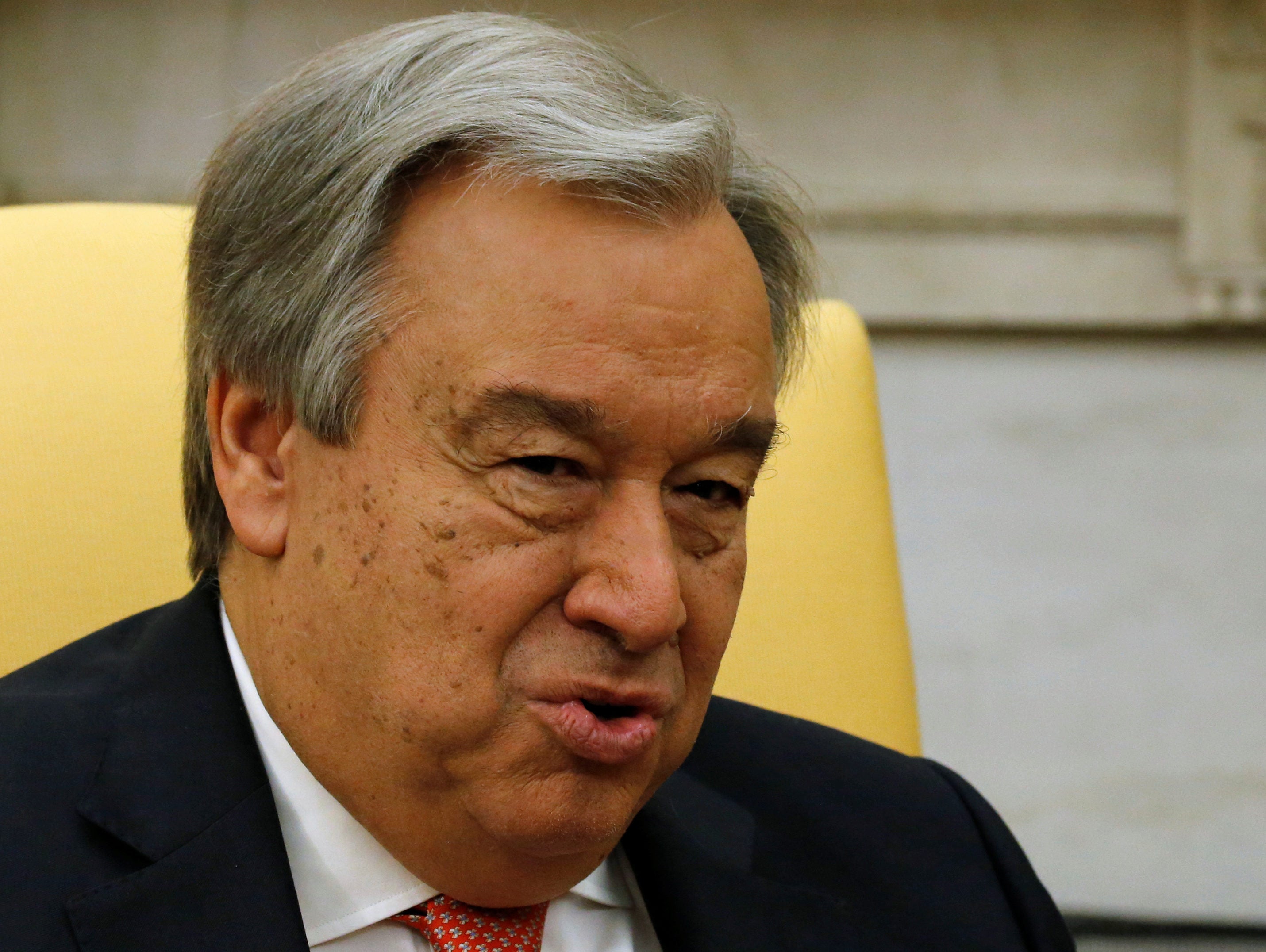
The head of the United Nations has called on governments and the international community to protect journalists and media workers at a time when attacks on the media have become “the new normal”.
Secretary-General Antonio Guterres issued the call to action in a speech to the Association of United Nations Correspondents based in Geneva, Switzerland, on the organisation’s 70th anniversary yesterday.
Gutteres, who took office in January 2017 as the ninth UN leader since the organisation was founded in 1945, warned the international community that it “cannot remain silent” on the issue of press freedom.
He said that while the world had “come a long way to realising freedom of expression” in the past 70 years, nonetheless “civic space has been shrinking worldwide at an alarming rate”.
In just over a decade, more than a thousand journalists had been killed while carrying out their work, with nine out of ten cases unresolved, said Gutteres.
The United Nations Education, Scientific and Cultural Organisation has recorded at least 99 journalist deaths in 2018. Others have put the figure at 80 and 94, owing to variations in how media workers are defined.
Gutteres said: “Many thousands more [journalists] have been attacked, harassed, detained or imprisoned on spurious charges, without due process. This is outrageous. This should not become the new normal.
“When journalists are targeted, societies as a whole pay a price. And I am deeply troubled by the growing number of attacks and the culture of impunity.
“No democracy is complete without press freedom. Nor can any society be fair and impartial without journalists who investigate wrongdoing and speak truth to the power…
“Journalism and the media are essential to peace, justice, sustainable development and human rights for all – and to the work of the United Nations.”
He went on: “According to UNESCO and press freedom organizations, the media has become significantly less free in recent years, including unprecedented threats to journalists and media outlets, and attempts to control the media – strangely, not only in authoritarian states, but also in democracies.
“Women journalists are often at greater risk of being targeted, including through online threats of sexual violence. The harassment, abuse, kidnapping, detention and even torture of hundreds of journalists every year is unfortunately becoming the new normal.”
Guterres said more than 250 journalists had been imprisoned in 2018, with the vast majority of those detained and attacked working as local journlaists in their own countries and communities.
“And the most dangerous subject for journalists to cover is not conflict -the number of journalists killed in combat or crossfire is low and falling,” he said.
“Most of the journalists and media workers killed, injured and detained were covering politics, crime, corruption and human rights. Those arrested and imprisoned often face charges of anti-state activity, while a growing number are accused of publishing false news.
“In the face of this sustained campaign of harassment, intimidation and lack of accountability, we – the international community – cannot remain silent.
“The news that is suppressed – reports about corruption, conflicts of interest, illegal trafficking and crimes and abuses of all kinds – is exactly the information the public needs to know.
“I call on Governments and the international community to protect journalists and media workers, and to create the conditions they need to do their essential work, and to investigate and prosecute the perpetrators of attacks on them.”
Gutteres said he was “personally committed to defending press freedom and the safety of journalists” and would continue to express his “deep concern about this issue” to Governments and leaders.
“We need leaders to defend a free media and to counter disinformation,” he said.
On efforts to protect journalists made by the UN itself, Gutteres pointed to its system-wide strategy to “support the environment journalists need to perform their vital work” under the United Nations Plan of Action on the Safety of Journalists and the Issue of Impunity.
He said 2 November had been designated as the International Day to End Impunity for Crimes Against Journalists.
UNESCO and the United Nations Alliance of Civilisations are “stepping up their work” in Media and Information Literacy, to help people “detect disinformation, counter hate-speech and defend media freedom”, he said.
The UN monitors violence against journalists through the observatory of killed journalists run by UNESCO. It has recorded 1,318 journalists killed since records began in 1993.
Picture: Reuters/Jonathan Ernst
Email pged@pressgazette.co.uk to point out mistakes, provide story tips or send in a letter for publication on our "Letters Page" blog
